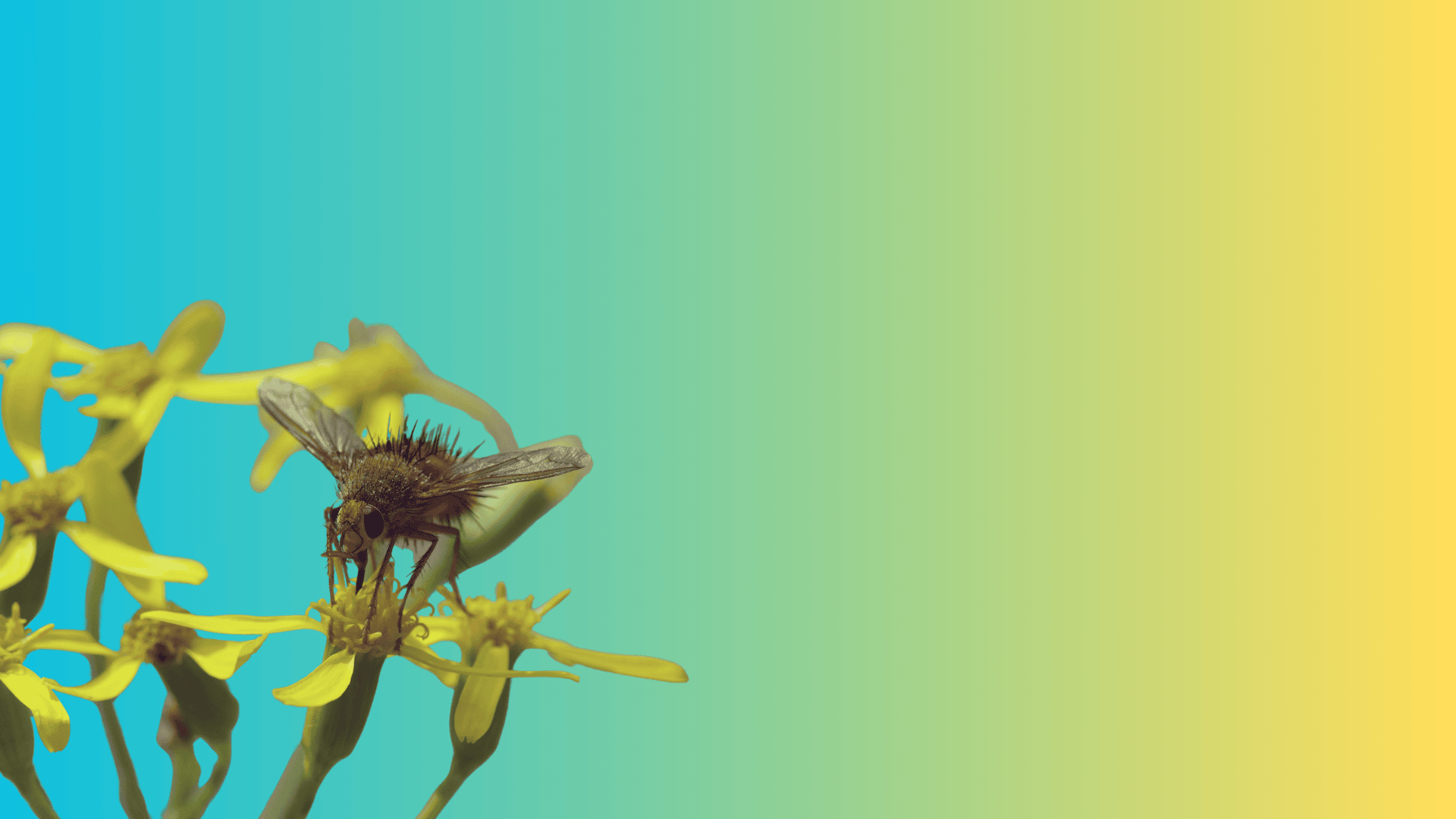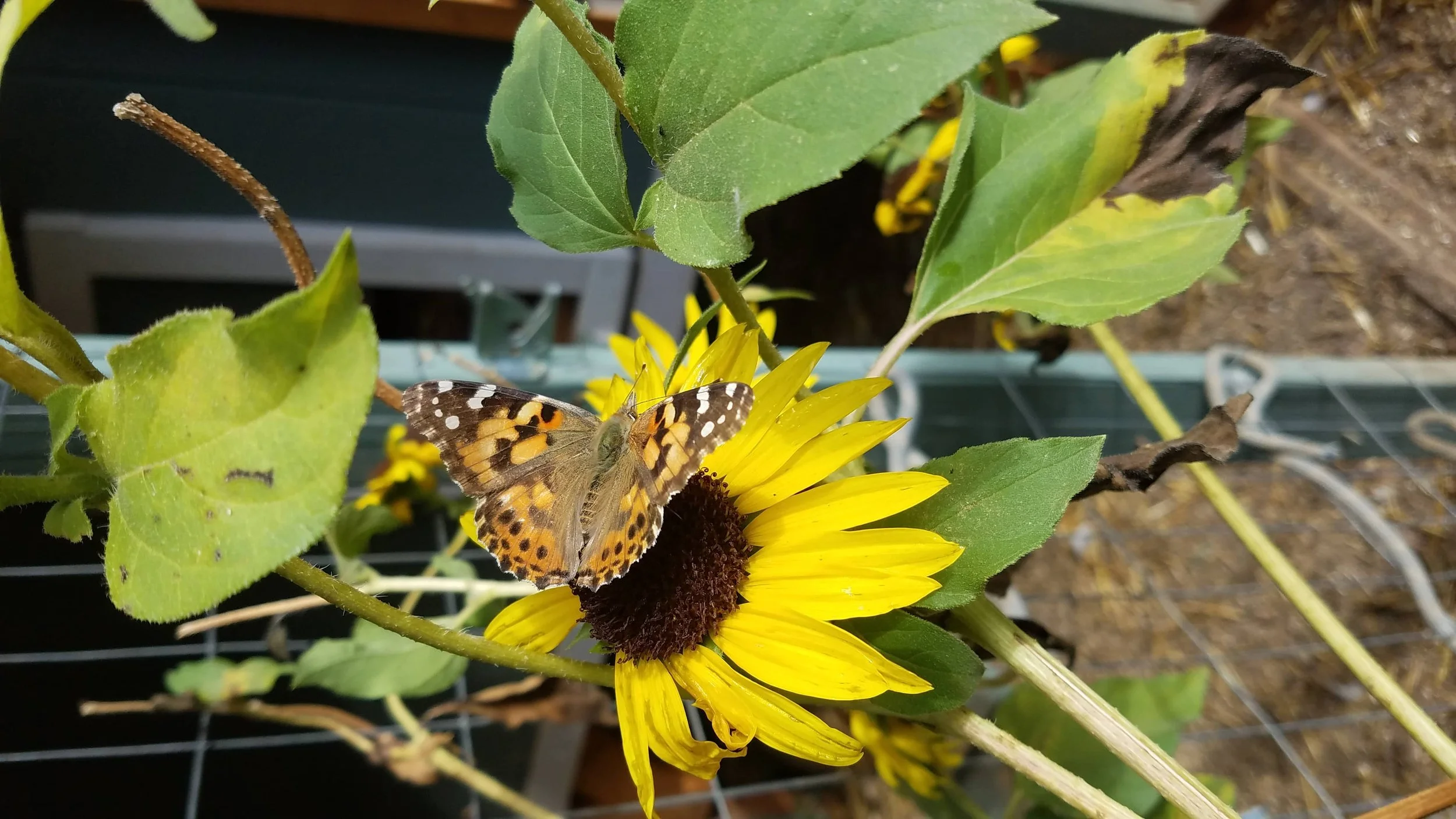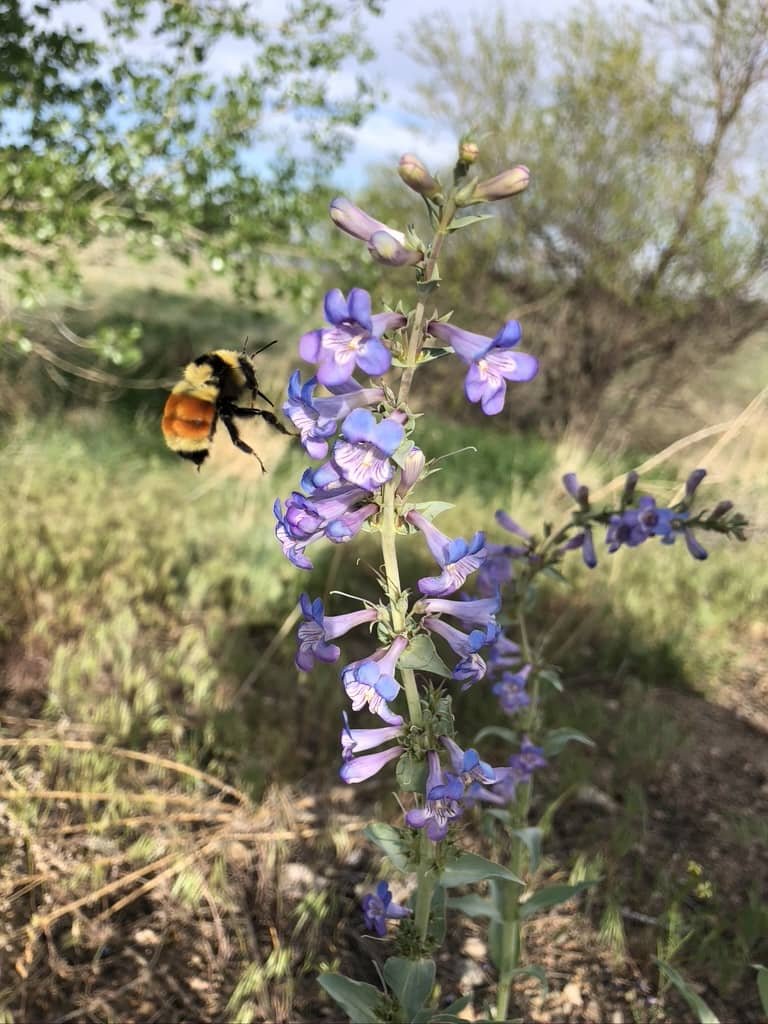
New Terrain for Pollinator Conservation
SCHEDULE | SESSION DESCRIPTIONS | SPEAKER BIOS
November 18, 2024 | 8am-5pm | Denver Botanic Gardens
Schedule
7:30am—8:15am — Registration & check-in, visit exhibitors’ room. Sturm Auditorium open for seating at 8am.
8:15am—8:30am — Welcome with Adrian Carper, City of Boulder & CU Museum of Natural History
8:30am—9:30am — Keynote Session: “How to Eat for the Bees: The Next Stage in Pollinator Conservation Begins in Your Kitchen,” with Eric Lee-Mäder of Northwest Meadowscapes & Xerces Society for Invertebrate Conservation
9:30am—10:00am — Session 1: Building Diversity for Pollinators Through Community Collaboration with Annemarie Fussell of Wildland Restoration Volunteers (WRV)
10:00am—10:15am — Transition from Sturm Auditorium to Mitchell Hall; Bio Break!
10:15am—10:40am — Session 2: Youth Climate Action: Pollinators and Urban Heat with Tiffany Boyd and students from Classrooms 4 Climate Action
10:40am—10:45am — Transition from Mitchell Hall to Sturm Auditorium
10:45am—11:45am — Session 3: The State's Commitment to Pollinator Conservation Efforts and Future Strategies in Colorado with David Klute, Kacie Miller, and Haley Schroeder of CPW, and David Anderson, CNHP
11:45am—12:00pm — Visit exhibitors room, gardens, networking
12:00pm—1:00pm — Lunch served in Mitchell Hall
1:00pm—2:00pm — Session 4: Habitats for Biodiversity Sessions:
Bee Log Hotels: Monitoring Bees and Wasps Through Their Nesting Materials with Georgia Lopez, Owner, Circle Ecology
Trees for Bees with Derek Lowstuter, ISA Certified Arborist, permaculture designer, and Agriculture and Food Systems Specialist with CSU Extension
2:00pm—2:10pm — Stretch break!
2:10pm—3:00pm — Session 5: Innovative Ways to Look at the Relationships Between Humans and Insects
Starting Small: A Humane Education and Psychotherapy/Counseling Program at Animal Assisted Therapy Programs of Colorado with Terri Bauer, MSW, LCSW, CAAP
Making Art with Pollinators with Lauri Lynnxe Murphy, MFA, bio-artist, sculptor, and writer
3:00pm—3:45pm — Session 6: New Findings Through Community Science: Native Bee Watch with Lisa Mason, Horticulture Specialist, Entomologist, Arapahoe County, Colorado State University Extension; the Colorado Butterfly Monitoring Network with Rich Reading, Vice President of Science and Conservation, Butterfly Pavilion; and the Mountain States Bumble Bee Atlas with Amy Dolan, Endangered Species Conservation Biologist, The Xerces Society for Invertebrate Conservation.
3:45pm—4:00pm — Closing remarks
4:00pm—4:45pm — Visit exhibitor tables, networking, explore the gardens!

Keynote: How to Eat for the Bees: The Next Stage in Pollinator Conservation Begins in Your Kitchen
Session Description
Agriculture is the single largest land use on earth. Its impacts on biodiversity are profound – producing both direct loss and degradation of wildlife habitat – as well as indirect effects such as climate instability. Yet even as many of our agriculture and food system models diminish nature, there are potential alternatives. Join ecologist and food industry consultant Eric Lee-Mäder in an exploration of what a biodiversity-focused food system could look like, the pathways to advancing such a model, and how biodiversity-focused food is the best food you will ever eat.
Speaker Bio
Eric Lee-Mäder is a co-founder and principal at Northwest Meadowscapes, a prairie seed company and meadow-making consultancy based in Washington state. His 25-year career in conservation includes prior work as a director at the Xerces Society where he led multinational pollinator conservation initiatives with major food companies, partnerships with farmers and the USDA focused on the federally endangered Karner blue butterfly, multi-watershed hedgerow planting efforts across the West, and nationwide native plant propagation research and development projects for large-scale habitat restoration. Eric continues to advise food companies on integrating conservation into their supply chains, and is focused on the development of wild lawn systems as an alternative to traditional turfgrass. His recent book, The Milkweed Lands, was awarded the 2023 National Outdoor Book Award.
Session 1
Building Diversity for Pollinators Through Community Collaboration
In ecosystems where pollinators struggle with dwindling native plant populations, Wildlands Restoration Volunteers (WRV) recognize the critical link between native flora and thriving pollinator communities. Celebrating 25 years, WRV takes a holistic approach through its Plants and Pollinators program.
Annemarie Fussell, Plant and Pollinator Project Manager, delves into the heart of their strategy, broad collaboration with diverse stakeholders. From forging partnerships with land agencies and local farms to mobilizing volunteers and engaging private landowners, WRV orchestrates restoration efforts with communities aimed at restoring habitat and bolstering pollinator populations.
Their initiatives span a spectrum of activities, from native seed and pine cone collections to the innovative NoCo Native Plant Exchange. WRV's outreach extends to the next generation through youth-focused programs in native horticulture and restoration, ensuring a legacy of stewardship and ecological awareness.
At its core, WRV champions a message of hope, emphasizing that tackling the native plant and pollinator crisis demands a multifaceted approach. By fostering collaboration and public engagement WRV ignites a ripple effect of creativity and success, empowering communities to become champions of biodiversity and guardians of our shared natural heritage.
Annemarie Fussell, Plants & Pollinators Project Manager, Wildlands Restoration Volunteers (WRV)
Annemarie (Am) grew up in New Jersey camping in the Eastern woods with her parents, she truly fell in love with the outdoors and found her calling in life. After attaining a BS in Wildlife Biology from CSU and with a background in volunteer coordination, trail restoration, and science/public policy education, Am is delighted to support our volunteers and restoration efforts. Before moving back to Fort Collins from Summit County, Colorado, she traveled through Patagonia, Western Europe and the Southern Rockies living on her bike for months at a time. Now she spends her time focusing on a sustainable lifestyle commuting by bike, volunteering and vegetable gardening.

Session 2
Youth Climate Action: Pollinators and Urban Heat with Tiffany Boyd and Classrooms 4 Climate Action students.
Learn from Classrooms 4 Climate Action and students from High Peaks Elementary School and Boulder Community School of Integrated Studies (Boulder Valley School District) as they advocate for pollinators facing rising temperatures, habitat loss, and the impact of pesticides.
Session 3
Advancing Biodiversity: The State's Commitment to Pollinator Conservation Efforts and Future Strategies in Colorado
This panel discussion with David Klute, Kacie Miller, and Haley Schroder of Colorado Parks & Wildlife (CPW) and David Anderson of Colorado Natural Heritage Program (CNHP) will provide an in-depth look at the latest initiatives in biodiversity conservation in Colorado. Experts from CO Parks and Wildlife and the CO Natural Heritage Program will discuss ongoing programs and emerging priorities aimed at protecting the state's biodiverse ecosystems. This session will also explore new roles and partnerships shaping the future of pollinator protection in Colorado.
David Klute is the Deputy Assistant Director for Species Conservation with Colorado Parks and Wildlife. Dave has been with CPW for 22 years, first as the Bird Conservation Coordinator and then leading statewide species conservation programs. Prior to CPW, Dave was a migratory bird biologist with the U.S. Fish and Wildlife Service. With CPW increasing focus on a broader array of species, Dave is enjoying learning about pollinator conservation and developing new relationships. Dave holds degrees in Wildlife Biology from the University of Missouri (BS), Kansas State University (MS), and Penn State University (Ph.D.).
Kacie is the State Wildlife Action Plan (SWAP) Coordinator for Colorado Parks and Wildlife. She enjoys bringing people together via conservation planning to facilitate ideas coming to fruition. Outside of work, Kacie can be found out on a trail or volunteering at the women's prison.
Hayley Schroeder has recently joined Colorado Parks and Wildlife as the Invertebrate and Rare Plant Program Supervisor. She earned her PhD in Entomology from Cornell University and has spent her career investigating the complex routes by which anthropogenic stressors influence insect communities. The threats facing insects are diverse and interdependent, and therefore require solutions that are collaborative and inclusive. Hayley also loves to use art as an accessible tool to help demystify and educate about invertebrates. Please connect with Hayley at the Pollinator Summit to continue building these collaborations as she begins in this new role.
David Anderson is the director for the Colorado Natural Heritage Program. In that role he spends most of his efforts on program coordination and outreach, developing new projects and initiatives for the program, and now working as principal investigator on the Statewide Natural Heritage Survey. His background is in botany and he has worked throughout Colorado studying rare plants and plant communities. Prior to his work at CNHP he worked in the Alaskan and Canadian Arctic on botany field projects, and he was a Peace Corps Volunteer in the Solomon Islands in the South Pacific in 1997-1999.

Session 4
Habitat for Biodiversity Session A
Bee Log Hotels: Monitoring Bees and Wasps Through Their Nesting Materials with Georgia Lopez, Owner, Circle Ecology
Bee hotels are fabricated tools for monitoring bee and wasp communities. Georgia Lopez will present her study, which evaluates the use of installed bee log hotels on five different Open Space properties in Longmont, and share recommendations for best practices for using bee log hotels as a management practice for long-term population monitoring of wood-nesting pollinators.
Habitat for Biodiversity Session B
Trees for Bees with Derek Lowstuter, ISA Certified Arborist, permaculture designer, and Agriculture and Food Systems Specialist with CSU Extension
Trees and shrubs provide important food and habitat for pollinators, both native and introduced. However, they are often overlooked in favor of herbaceous perennial and annual species. This session will demonstrate the value of flowering trees and shrubs for beneficial insects and provide actionable examples of how this can be done in CO.
Session 5
Innovative Ways to Look at the Relationships Between Humans and Insects A
Starting Small: A Humane Education and Psychotherapy/Counseling Program at Animal Assisted Therapy Programs of Colorado with
Terri Bauer, MSW, LCSW, CAAP
This presentation will provide information regarding the inspiration for the Starting Small program, how it has been implemented, and what insights have emerged from working with invertebrates in a clinical psychotherapy setting. Invertebrates are an integral part of our health and the health of our planet so including these small friends in the mental health realm allows clients to take care of themselves and, in turn, take care of invertebrates and the planet!
Innovative Ways to Look at the Relationships Between Humans and Insects B
Making Art with Pollinators with Lauri Lynnxe Murphy, MFA, bio-artist, sculptor, and writer.
Lauri’s art inspires hope about the work we are doing to protect and save pollinators and demonstrates that using art and collaborating with scientists is a perfect way to inspire people to action. She has been making art with pollinators and scientists—especially honeybees and fireflies—for over a decade. She collaborates with the CU Biofrontiers Institute and members of the public to elevate community science and invertebrate conservation through art.
Session 6
New Findings Through Community Science
In this panel discussion hear about three community science projects that are helping us learn more about Colorado’s pollinators and how participatory science has a consequential role in pollinator conservation. Hear about Native Bee Watch with Lisa Mason, Horticulture Specialist, Entomologist, Arapahoe County, Colorado State University Extension; the Colorado Butterfly Monitoring Network with Rich Reading, Vice President of Science and Conservation, Butterfly Pavilion; and the Mountain States Bumble Bee Atlas with Amy Dolan, Endangered Species Conservation Biologist, The Xerces Society for Invertebrate Conservation. The panel will talk about the roles of community science, new frontiers, challenges, and how you can engage in these important and rewarding projects.
Lisa Mason is the Horticulture Specialist for Colorado State University Extension in Arapahoe County. She has a master’s degree in entomology and undergraduate degrees in forestry and theatre from CSU. She founded and is the Director of Native Bee Watch, a community science program where volunteers are trained to observe and identify bees visiting flowers in Colorado. Her professional interests include Extension education, programming, and community science in the areas of horticulture, entomology, and pollinator conservation.
Richard Reading, Ph.D. is the Vice President of Science and Conservation at Butterfly Pavilion. He serves as an Adjunct Professor within the Department of Biology at the University of Denver; Affiliate Faculty with the Department of Agricultural Biology at Colorado State University; and a Fellow with the University of Nebraska’s Center for Great Plains Studies. Rich was appointed to the Colorado Parks & Wildlife Commission in 2022, where he now serves as Vice Chair. Dr. Reading received a Ph.D. and three Master’s degrees from Yale University in Wildlife Ecology and Human Dimensions of Wildlife and an Honorary Doctorate from the National Education University of Mongolia. Read more.
Amy joined Xerces in June 2024 to coordinate the Mountain States Bumble Bee Atlas in Colorado, Nevada, Utah, and Wyoming. The goal of the project is to engage with agency partners and community scientists to gather data on bumble bee distribution and habitat needs across the region.
Amy has a bachelor's degree in biology from Wisconsin Lutheran College and a master’s degree in entomology from Montana State University. Her masters project was “The Bumble Bees of Montana.” Much of Amy’s career has been spent in education—as a middle and high school science teacher, outdoor educator, and youth crew leader. She is excited to explore the diverse landscapes of the mountain states while connecting with new people and sharing her love of bumble bees.





Thank you to our 2024 Summit Sponsors!
Premier 2024 Sponsors
Gold 2024 Sponsors
Silver 2024 Sponsors
Bronze 2024 Sponsors
2024 Pollinator Friends & Exhibitors
To sponsor the 2024 Colorado Pollinator Summit please reach out to us at connect@coloradopollinator.network.































